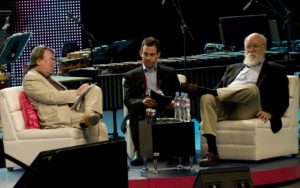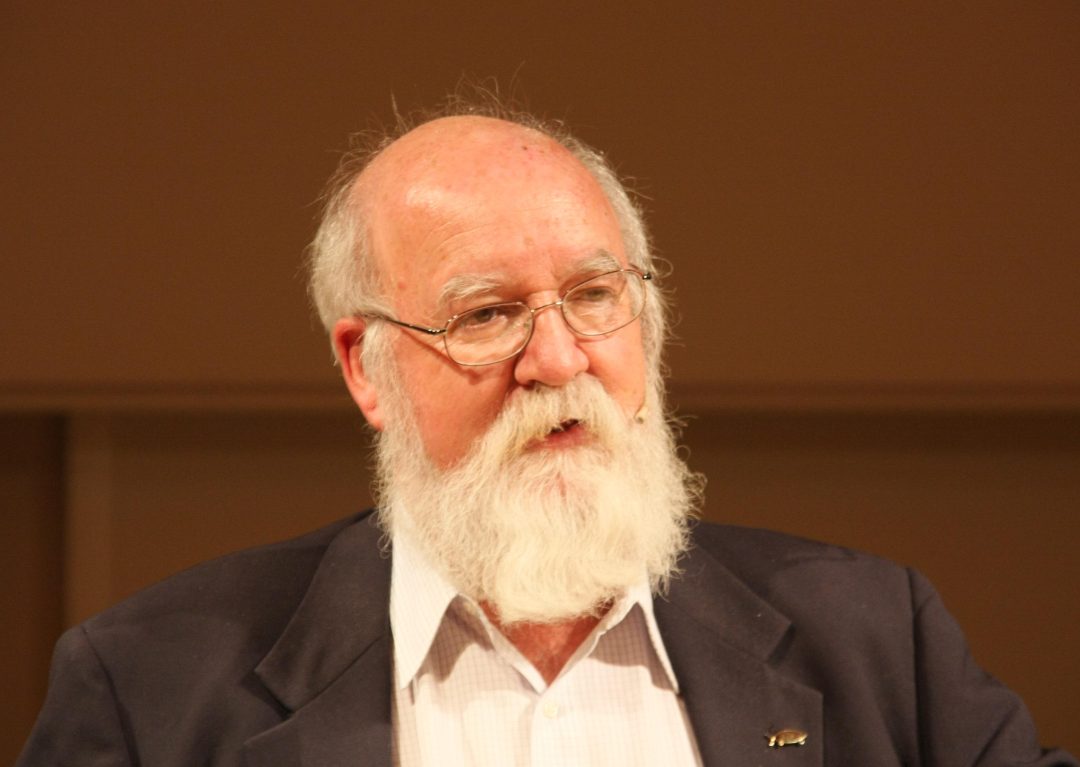When he emerged recently from a close brush with death, Professor Daniel Dennett heard that some of his religious friends had prayed for him. True to form, he quipped that it was awfully nice of them, but did they also slaughter a goat? His claim to fame at the moment is his brilliant polemic “Breaking the Spell”.
He is University Professor and Austin B. Fletcher Professor of Philosophy, and Co-Director of the Center for Cognitive Studies at Tufts University. He has received two Guggenheim Fellowships, a Fulbright Fellowship, and a Fellowship at the Center for Advanced Studies in Behavioral Science. He was elected to the American Academy of Arts and Sciences in 1987.
Dennett’s dangerous ideas
All this from a philosopher. Richard Dawkins has referred to him as “scientifically savvy”, but this is only the tip of the iceberg of Dennett’s dangerous ideas.
 His calm, lucid but passionate adherence to structured reasoning and clear explanations of complex subjects have made him an important contributor to scientific discourse. At Atheist Alliance he was awarded the first “Richard Dawkins Award” for his contributions for the furthering of scientific knowledge to the general public and his powerful charges against pestilential religious thought.
His calm, lucid but passionate adherence to structured reasoning and clear explanations of complex subjects have made him an important contributor to scientific discourse. At Atheist Alliance he was awarded the first “Richard Dawkins Award” for his contributions for the furthering of scientific knowledge to the general public and his powerful charges against pestilential religious thought.
The Notion of belief in belief
When focussing on Dennett’s actual contributions, the space allowed can not do it justice. But one sore point that is Dennettian and, therefore, entirely “dangerous” is his notion of “belief in belief”. Every moderate believer can usually be bound up, gagged and shuffled off into the shadowed land of denial, when we come to grips with this idea.
Christopher Hitchens, another noted atheist, says belief in belief is “the strange idea that, though faith itself may be ludicrous and incoherent, the mere assertion of it may possess some virtues of its own.”
In assessing the evolutionary benefits of religious belief (cui bono? Dennett asks us constantly in “Freedom Evolves” and “Breaking the Spell”), Dennett does not fail to give credence where it is deserved. But this is no adherence to the supernatural. On the contrary: It is completely natural, a completely natural occurrence in the world and thus we have the subtitle for “Breaking the Spell” – “religion as a natural phenomenon.”
He may look like Santa Claus but the gifts he brings are not ones that children would willingly grasp by a fireside. His, as with most atheists, is of the beauty of the world without recourse to superstition.






